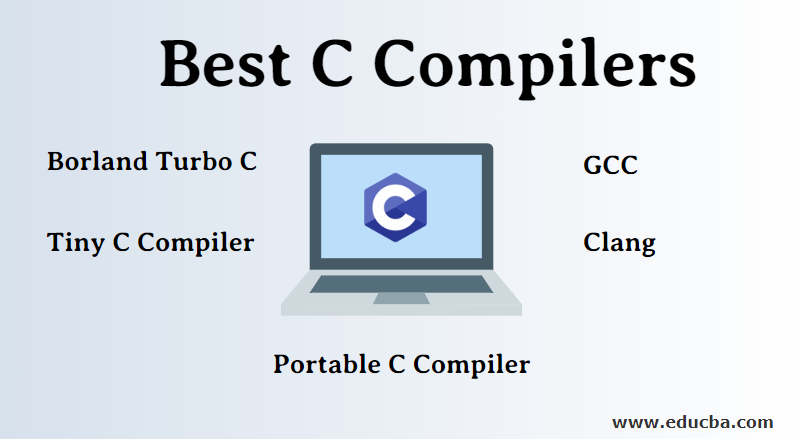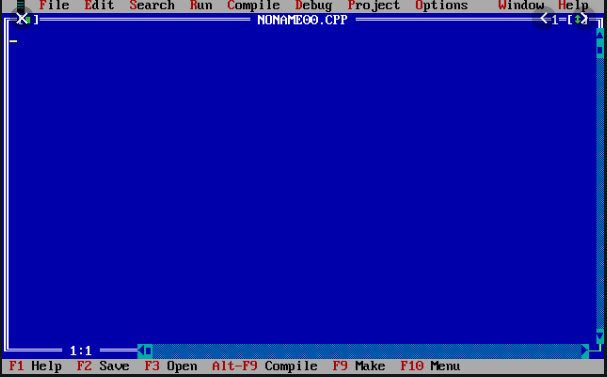Updated May 23, 2023

Overview of C Compilers
Let’s learn this concept of compilers with an example. Suppose you have been to a place where the languages you speak are completely different, and now you have some traveling issues and want to communicate the same with them. How? Did you need a translator right? You opt to have someone who can understand your language and translate and let the opposite person understand what you want to say. In the same way, we would be writing our C code in a high-level language that is a human-understandable format. How would the program understand what we have asked it to do? This is where the compiler comes into the picture.
A compiler transforms and translates a high-end language to machine (low-level) understandable language. The compiling process does basic translation mechanisms and also error detection. The front-end compilation includes lexical, syntax, and semantic analysis. And at the back end, the compilation generates and optimizes code. So there are many compilers in C like BDS, Clang, GCC, Interactive C, Lattice, Portable C Compiler, Visual Express, etc. Let’s get to know more about a few of them.
Explanations to C Compilers
Below are the Top Compilers of C:
1. Borland Turbo C
Turbo C is one of the basic and popular compilers for the C programming language. This was first introduced in 1987; it was popular for its small size, compilation speed, and low price. After the release of Turbo C++ in 1990, the compilers were merged, and the name Turbo C was discontinued. In 2006, Embarcadero Technologies re-released Turbo C as freeware. Do you remember this blue screen?
2. Tiny C Compiler
The developers specifically designed The Tiny C Compiler to optimize performance on slow computers with limited disk space. This is an ARM processor C compiler. This compiler started its support for Windows in 2005. Some of its features are mentioned below.
- Its file size is small and according to the owner of this compiler (Fabrice Bellard). The fastness of this compiler is around nine times faster than GCC. The team measured the fastness of this compiler based on its main attributes: compiling, assembling, and linking code.
- This compiler included many compiler-specific features to boost the optional memory and bound checker and had greater code stability.
- This compiler allows automatic execution of programs during the compile-time only using command line arguments. This way, programs are executed under UNIX using shell scripts. They released the latest version on December 2017.
3. Portable C Compiler
The Portable C Compiler (PCC) was an early and established compiler for the C programming language, widely used around the mid-1970s. This compiler had a long lifespan. This was prevalent during a period in such a way that many of the C compilers were based on it. The advantages of PCC depended on its capabilities and probability predictions. The designers designed the PCC compiler so that only a few specific source files were machine-dependent, not all of them. It can detect syntax errors and can perform perfect validity checks. The developers released a new version of PCC on 10 December 2014.
4. GCC
GNU Compiler Collection is the compiler produced by the GNU Project. This supports many programming languages and is a free software foundation under the General Public License. This compiler was first released in 1987 and initially supported only C- Programming language. Slowly it expanded to C++, Java, Android, and IOS. Each language compiler has a program that reads the code written and sends the machine code as the output. All of these have a common internal structure. When writing a high-level language, the compiler parses the code in that language and generates an abstract syntax tree (AST) per the language’s grammar rules.GCC uses LALR parsers but slowly switched to recursive-descent parsers for C in 2006. Coming to the optimization part, as already known, can occur during any phase of the compilation. However, the bulk optimizations are performed here before the code generation and after the semantic syntax analysis. Below are a few of the optimizations performed by GCC.
- It can eliminate the Dead Code pieces.
- It can eliminate the redundancy at the code level.
- Replacement of Aggregates concerning the scalar level.
- Can perform optimizations with Arrays.
In GCC back end is specified by preprocessor macros and functions specific to a particular architecture. The code is typically constructed by initially invoking a small snippet associated with each pattern and subsequently generating instructions from the instruction set. It is done using registers, offsets, and addresses that are chosen during the re-load phase. GCC’s version, 9.2, was released on August 12, 2019.
5. Clang
- Clang, including C, is also a C++, Objective-C, and Objective-C++ programming languages compiler. This compiler uses LLVM for the back-end code-related compilations. The design of this compiler includes support for many of GCC’s compilation flags and language extensions to replace GCC.
- Clang has many contributors, including Apple, Microsoft, Google, Sony, and Intel. It is open-source software. GCC first used LLVM for the front-end compilation, but GCC caused some problems for developers at Apple, as the source code is large and difficult to use. So, they came up with Clang.
- One of the major goals for Clang is to provide library-based architecture. Compared to GCC, its design emphasizes more information retention throughout the compilation process. This also helps to preserve the overall shape of the original code.
- Clang generates the error report during compilation in a detailed and specific machine-readable format. Clang had always aimed to reduce the over usage of memory space and increase the compilation speed as compared with GCC, and due to these qualities, it had become one of the fastest-growing used compilers during a point in time. But over a period, the performance of Clang started to come down. The reports told the performance had lagged with almost large differences compared to GCC and started to have slower performance. The most recent comparisons indicate that both the compilers had increased their performance and created great competition. Yet, GCC remains to top the list.
Conclusion
Though many compilers are available for C, GCC stands out as one of the best. The winner declaration here lies based on durability, optimization, speed, and code/error/syntax checks. Through this, we can clearly understand that the Compiler is an important pillar of programming languages. Without their work, whatever program we write would be garbage for the system.
Recommended Articles
This has been a guide to Best C Compilers. Here we discuss the basic concept and explanations of C Compilers in brief. You can also go through our other suggested article to learn more –



